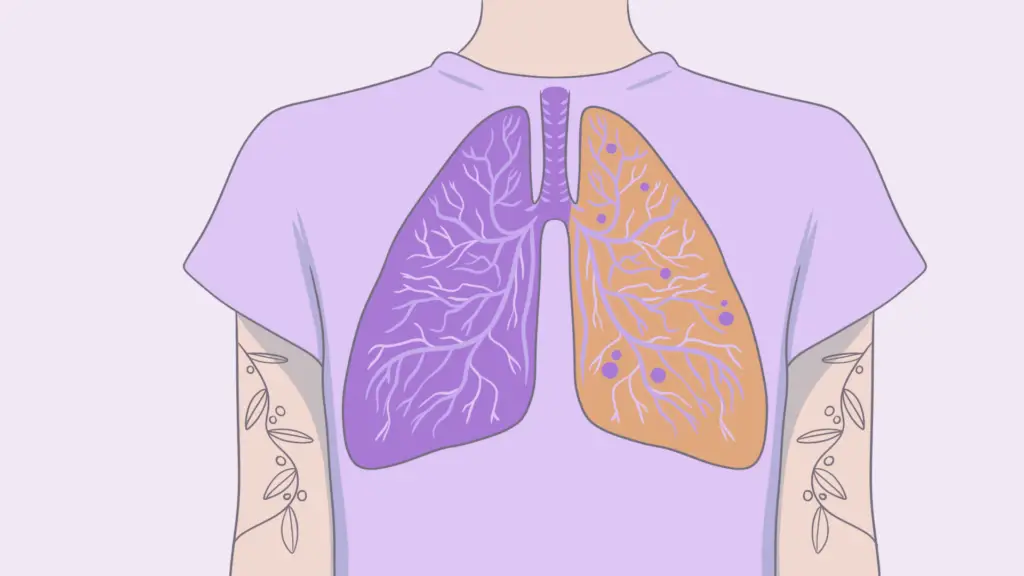Medically Reviewed by Dr. Jerrica Kirkley & Dr. Jenny Wares
If you were ever wondering, “Does marijuana interfere with gender-affirming hormone therapy?” The short answer: maybe. Marijuana use has more than doubled since 2013. Around 17% of adults in the United States consume it. For the trans and non-binary community specifically, this number is between 25%-40%. It’s essential to understand how different substances, like marijuana, can interact with gender-affirming hormone therapy (GAHT). Let’s explore this question in more detail. We’ll look at the risks, interactions, and health impacts of consuming marijuana while on GAHT.
Table of Contents
What is Marijuana?
Marijuana, also known as cannabis, is a plant used for its psychoactive effects. The primary active ingredients are THC (tetrahydrocannabinol) and CBD (cannabidiol). THC causes the ‘high’ feeling. CBD may have therapeutic effects but is non-psychoactive. Non-psychoactive means that a substance does not affect your mind or mood. It won’t make you feel high, change how you think, or alter your emotions. Instead, it might have other effects on your body, like helping with pain, without affecting your brain. People use marijuana for many reasons. They seek recreation, relaxation, and pain relief. They also use it to treat anxiety, chronic pain, and epilepsy. There are various ways marijuana can be consumed. They include smoking, vaping, edibles, tinctures, and topicals. Each method has different onset times and effects. They affect how marijuana interacts with other drugs and therapies.
Risks and Interactions with GAHT
There is no specific research on the interaction between HRT for trans and non-binary folks and marijuana use. Even though there isn’t much research on this, experts know the potential for marijuana and medications exists. Both THC and CBD can affect liver enzymes, especially the CYP450 family. These enzymes metabolize many drugs, including hormones used in GAHT. A healthcare provider must regularly check hormone levels. This ensures the therapy is working and allows for adjustments if needed.
Marijuana’s effects on mental health can vary widely among individuals. Some find it helps with anxiety and depression. Others may feel more anxious or paranoid, or have mood swings. Being aware of these potential effects is crucial for those on GAHT. Hormone therapy can affect your mood and emotions. It’s vital to know how marijuana affects your mental health. Combining it with GAHT could amplify those effects. We must use marijuana cautiously. Seek help from mental health pros if needed.
Frequent marijuana use, especially smoking, stresses the heart and blood vessels. For those on GAHT, this combination could potentially increase the risk of cardiovascular events. If you have heart issues or risk factors, talk to your doctor about using marijuana. It’s important to ensure it’s safe for you.
Overall Health Impact
So is it marijuana itself or the way you consume it that impacts health? The short answer: both, depending on the concern! Smoking marijuana can have similar respiratory risks as smoking tobacco. Regular marijuana smoking is associated with chronic bronchitis and other respiratory issues due to the inhalation of smoke and tar. Adding respiratory stress can complicate maintaining your overall health and wellness. Considering alternative methods of consumption, such as edibles or tinctures, can mitigate these risks. Each method has its own set of pros and cons, but reducing smoke inhalation is generally beneficial for long-term lung health.
People often report that using marijuana is an effective way to cope with anxiety. The research exploring these claims from observational studies and clinical trials are inconclusive. In these studies, THC appears to decrease anxiety at lower doses and increase anxiety at higher doses. CBD appears to decrease anxiety at all doses that have been tested. Long or heavy marijuana use can harm memory, attention, and learning.
For trans women trying to preserve their fertility, marijuana use can be risky regardless of the way you consume it. Research shows that marijuana lowers semen volume, sperm count, and sperm quality. This can reduce the chances of successful conception. THC, the active component in marijuana, harms the reproductive system. It impairs sperm production and quality. Trans women who wish to use their genetic material to have children, should consider the effects of marijuana on sperm health. Using less or no marijuana before sperm banking may help. It may improve outcomes and achieve reproductive goals.
Tips for Trans and Non-binary People on GAHT
Monitor Your Health: Always talk to your healthcare provider before using marijuana if you are on GAHT. They can help you understand potential interactions and monitor your hormone levels. You should not be afraid to discuss your marijuana use with your doctor—it’s an important part of your overall health. Being open about all substances you use allows your healthcare provider to give you the best care possible. A healthcare provider familiar with both your hormone therapy and marijuana use (like us at Plume!) can provide personalized advice and adjustments to ensure both therapies work effectively and safely together.
Keep track of any changes in your physical or mental health when using marijuana. Journals or health apps can help you track side effects. This info can help your healthcare provider adjust your treatment plan.
Be Aware of Dosage: If you choose to consume marijuana, start with a low dose of marijuana and see how it affects you. Everyone’s body reacts differently, and it’s essential to find what works for you without compromising your health. Being cautious with dosage can help prevent adverse effects and allow you to gauge your body’s response gradually. Recent data shows that THC levels in marijuana are now much higher than in the past. This rise has led to more negative outcomes for users.
Considering quitting? Quitting marijuana can be challenging, especially if it’s been a significant part of your routine or coping mechanism. However, numerous resources and strategies can help you on this journey. Here’s a few to check out if you are thinking about quitting:
- Marijuana Anonymous (MA): This organization follows a 12-step program similar to Alcoholics Anonymous. Their website has info on meetings, literature, and online resources to help you.
- SMART Recovery: SMART Recovery provides a science-based program to help individuals manage addiction. They offer online meetings, tools, and resources to support your recovery process.
- Quit Cannabis Community on Reddit: This group offers support for those quitting marijuana.
- “The Easy Way to Stop Smoking” by Allen Carr: It focuses on nicotine. But, many find its principles apply to marijuana too. Carr’s method tackles the psychology of addiction. It helps readers change their mindset and quit without feeling deprived.
- “Marijuana Anonymous: Life with Hope”: This is the official book of Marijuana Anonymous. It shares personal stories and insights into the 12-step program. It includes stories from those who struggled with marijuana addiction. They found recovery through the MA program.
- “Dopamine Nation: Finding Balance in the Age of Indulgence” by Dr. Anna Lembke: This book explores the neuroscience of addiction and how modern society’s constant pursuit of pleasure can lead to addictive behaviors. Dr. Lembke offers insights into how to find balance and overcome addiction by understanding the brain’s reward system.
- NoMo app: An app designed to help with various addictions, including marijuana. It provides progress tracking, daily motivations, and access to a community of people who are also quitting.
- Mindfulness and Meditation Apps: Apps like Headspace, Calm, and Insight Timer can help manage stress and anxiety, which are common triggers for smoking weed.
Understanding how marijuana interacts with gender-affirming hormone therapy is crucial for maintaining your health and well-being. By staying informed, consulting with your healthcare provider, and monitoring your health, you can make the best choices for your body and your transition journey. Always prioritize your health and well-being, and don’t hesitate to seek support and guidance when needed.
Sources
- American Psychological Association. Marijuana effects on the brain. American Psychological Association. https://www.apa.org/monitor/2023/06/marijuana-effects-brain. Published 2023.
- Asscheman H, Gooren LJ, Eklund PL. Mortality and morbidity in transsexual patients with cross-gender hormone treatment. Metabolism. 2014;38(9):869-873.
- Crean RD, Crane NA, Mason BJ. An evidence-based review of acute and long-term effects of cannabis use on executive cognitive functions. J Addict Med. 2011;5(1):1-8.
- Hembree WC, Cohen-Kettenis PT, Gooren L, et al. Endocrine treatment of gender-dysphoric/gender-incongruent persons: an Endocrine Society clinical practice guideline. J Clin Endocrinol Metab. 2017;102(11):3869-3903.
- Klein TW. Cannabinoid-based drugs as anti-inflammatory therapeutics. Nat Rev Immunol. 2005;5(5):400-411.
- Marijuana and anxiety: A review. Alcohol and Drug Abuse Institute, University of Washington. https://adai.uw.edu/pubs/pdf/2017mjanxiety.pdf. Published 2017.
- McCall W. Marijuana use and liver enzyme interactions. National Center for Biotechnology Information. https://www.ncbi.nlm.nih.gov/pmc/articles/PMC9871609/. Published 2023.
- Millar B. Interaction of cannabinoids with CYP450 enzymes. National Center for Biotechnology Information. https://www.ncbi.nlm.nih.gov/pmc/articles/PMC8393320/. Published 2021.
- Moore TH, Zammit S, Lingford-Hughes A, Barnes TR, Jones PB, Burke M, Lewis G. Cannabis use and risk of psychotic or affective mental health outcomes: a systematic review. Lancet. 2007;370(9584):319-328.
- National Academies of Sciences, Engineering, and Medicine. The Health Effects of Cannabis and Cannabinoids: The Current State of Evidence and Recommendations for Research. National Center for Biotechnology Information. https://www.ncbi.nlm.nih.gov/books/NBK425753/. Published 2017.
- Sidney S. Cardiovascular consequences of marijuana use. J Clin Pharmacol. 2002;42(S1):64S-70S.
- Simons J, et al. Cannabis use in transgender individuals: A review. SAGE Journals. https://journals.sagepub.com/doi/full/10.1177/17562872211032484. Published 2021.
- Singh A, et al. Cardiovascular effects of marijuana. American Heart Association. https://www.ahajournals.org/doi/10.1161/JAHA.123.030178. Published 2023.
- Tashkin DP. Effects of marijuana smoking on the lung. Ann Am Thorac Soc. 2013;10(3):239-247.
- Yale School of Medicine. Not Your Grandmother’s Marijuana: Rising THC Concentrations. Yale School of Medicine. https://medicine.yale.edu/news-article/not-your-grandmothers-marijuana-rising-thc-concentrations-in-cannabis-can-pose-devastating-health-risks/#:~:text=Over%20the%20last%20several%20decades,17%25%20and%20continues%20to%20increase. Published 2023.
- Zendulka O, Dovrtělová G, Nosková K, Turjap M, Šulcová A, Hanuš L, Juřica J. Cannabinoids and cytochrome P450 interactions. Curr Drug Metab. 2016;17(3):206-226.



